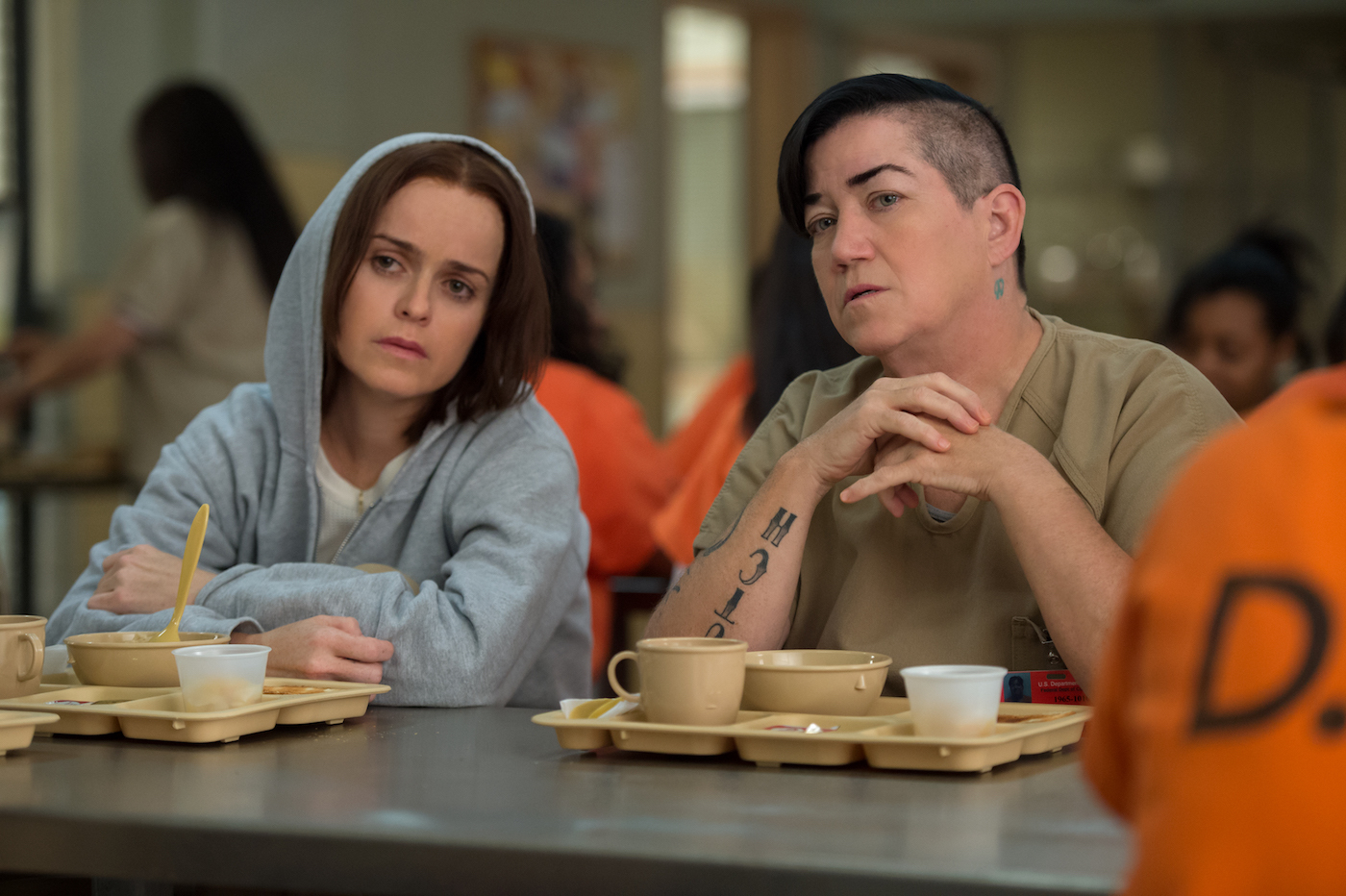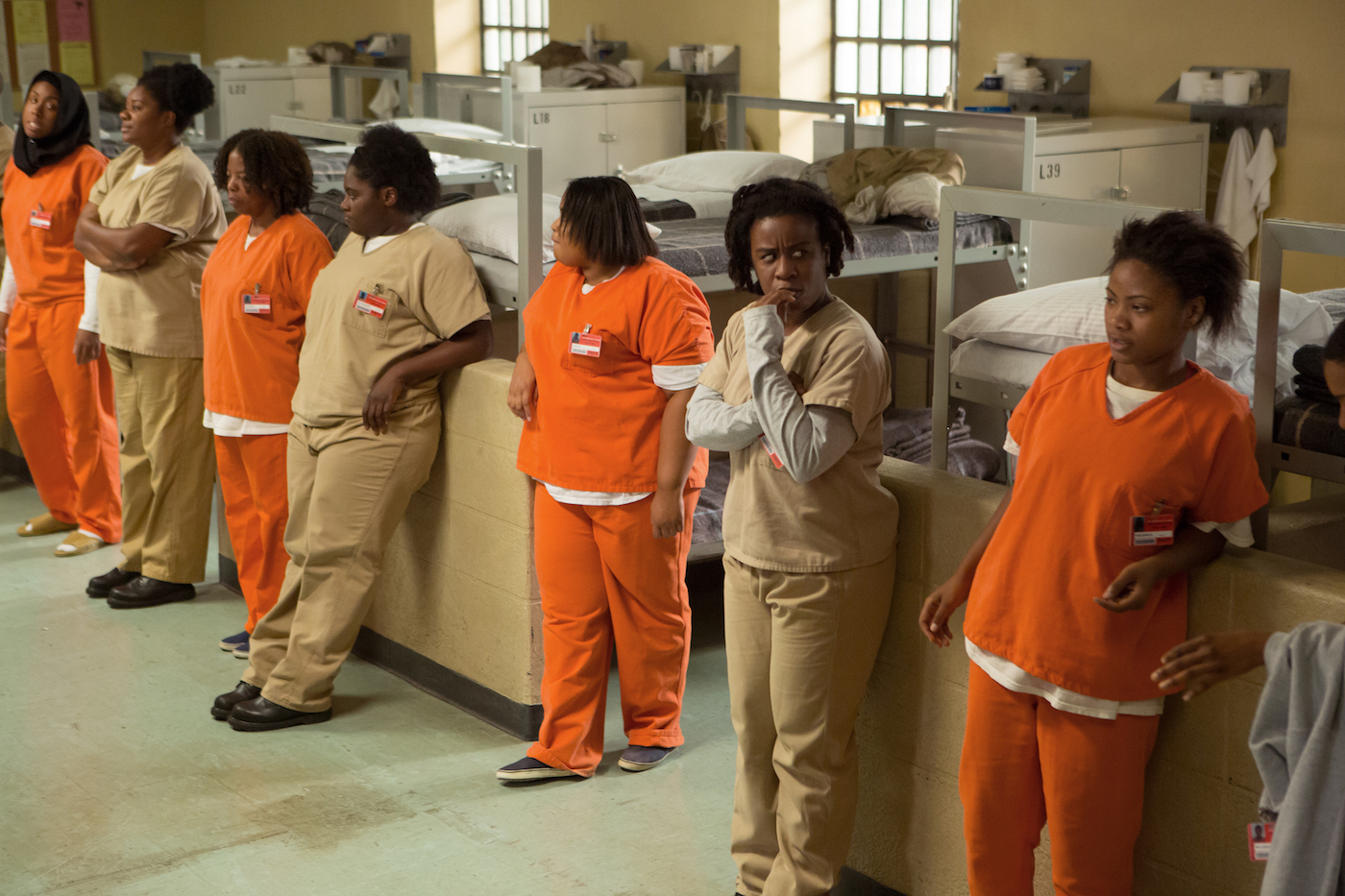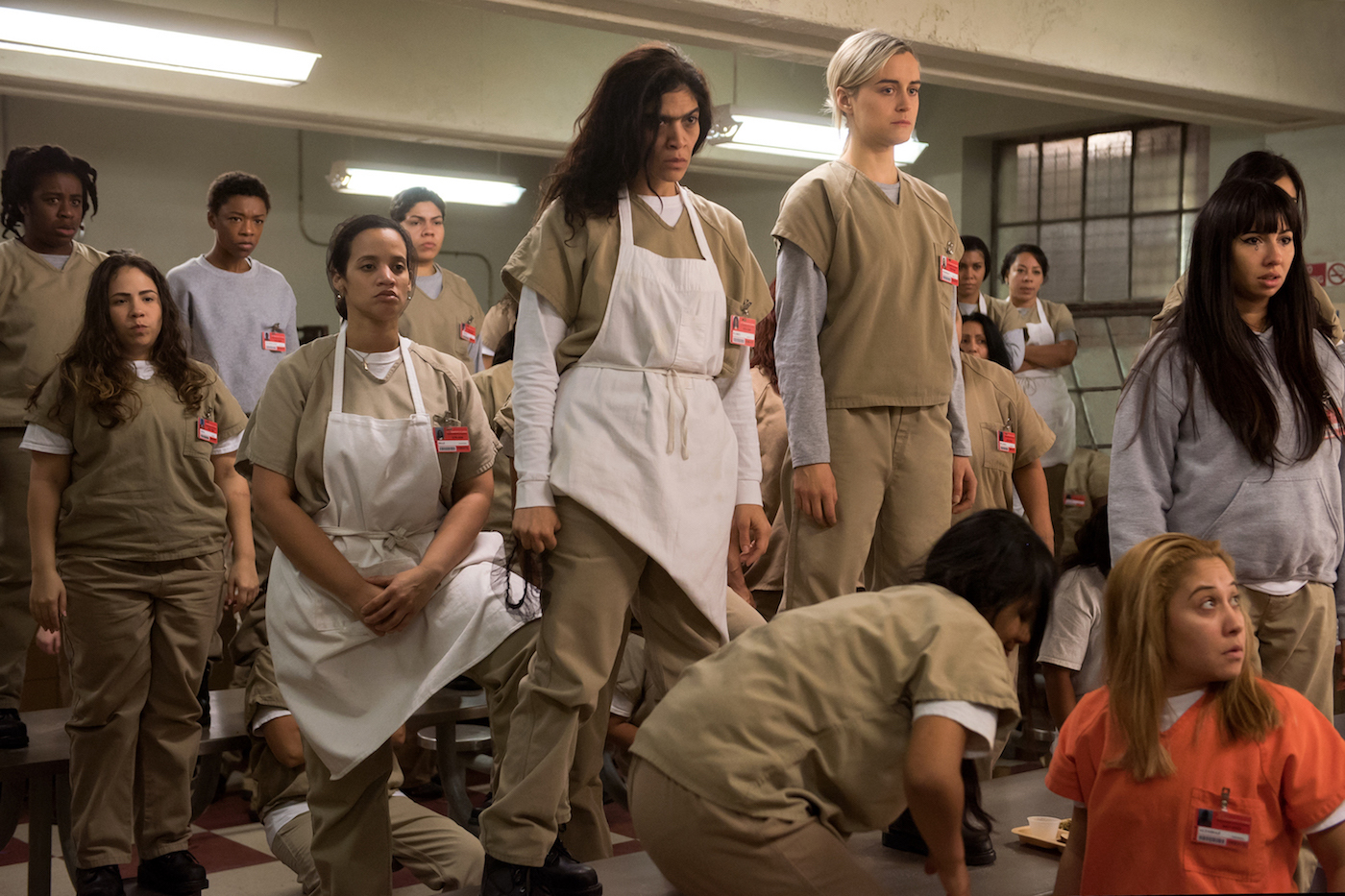In a world of #oscarssowhite and considerable gender pay gaps between female and male actors, Orange Is the New Black is a breath of fresh air. The show, which is Netflix’s most-watched original series, is paving the way for what the world of television should look like: a diverse range of characters of different race, size, age and sexuality, offering an uncensored and real representation women which tears down any labels in it’s path. This goes for both on-screen and behind-the-camera, in the words of OITNB director Jenji Kohan, “Talent with all sorts of genitalia can make successful TV and films.” which although seems obvious, is a statement which sadly needs to be made loud and clear. After three captivating seasons, which have been undoubtedly binged-watched across the globe, the highly anticipated fourth season arrives today. We caught up three of the talented actors from the series; Yael Stone who plays inmate Lorna Morello, Dascha Polanco who plays Dayanara Diaz and Lea DeLaria known to the world as Big Boo to discuss the cultural impact of the show and what we can expect for the fourth season.

Tell us a bit about the fourth season…
Dascha: The fourth season is pretty much about a new population coming into the prison. There’s a lot of conflict, there’s a lot of heartbreak again and I think for the most part you see the evolution of a lot of the main stories.
Lea: I think probably the biggest change between this season and the others is the darkness off it. I’ve been using the word excruciating a lot. The fourth season of Orange Is The New Black is excruciating. It’s very dark, so it’s a little harder for me because I’m more of a comedic actor. I’m required to emote more.
Do you think it was tricky getting the balance of comedy whilst tackling certain issues?
D: I think the director Jenji Kohan uses drama-edy like a genius. Jenji is trying to make a difference in the world with this show and she uses what I use as a stand up comic as well, I call it the spoonful of sugar method. It helps that medicine go down, so people are more likely to learn a lesson from you or get something from you if you make them laugh. This season is much darker, but of course the comedy is in there as well because it’s much easier to make a point that way.
L: It’s always an incredibly fine line, sometimes I have found in my life when, the shit is getting so bad that you’re either going to laugh or you’re going to cry and from people who have had real life prison experiences, it has been said that a sense of humour is important because the circumstances that people find themselves in are dire. To find those moments of comedy illuminates the tragedy, you look at writers like Chekhov and this is a grand tradition in story telling, to have both comedy and tragedy doing that very synchronised dance.
What do you think about the cultural impact that the show’s had?
Y: A lot of women make up this dynamic, incredible landmark change in television and to be part of that both a great privilege and of course a responsibility as well. Finally young women are seeing themselves reflected on television and they have different kinds of role models in terms of the wonderful women that portray these roles. We’re all about stripping back labels on this show and want to see this change continue throughout the industry. We would like to see more diversity, more women in front of and behind the camera and we’re excited to say that maybe the change begins with us.
L:I think it’s one of the reasons why so many people watch our show too, because people have been hungering to be able to see themselves on television when all they’ve seen is the Hollywood concept of what women are. And not just the women, the men on our series too, we are being real people and I think that’s what draws people in. Obviously people have been starving for it, you can’t argue with the results.
Dascha:When Jenji writes, something magical happens, she’s like a psychic. There’s some aspects of the fourth season that really reflect what’s going on in the States now with the whole immigration situation, with people coming in to the prison and how others resist them or how we’re not embracing them and I think it happens a lot with migrants or immigrants coming into a new territory. This season is so powerful and there are hugely relatable circumstances from the individuals to the groups and tribes, the guards, the government, the system itself – there are a lot of topics being brought up.

How did you find it dealing with your character? Has it been quite emotional following a character through four seasons?
D: I have a love for Dayanara. I have a compassion for her because I think she’s only a product of the cycle that she was brought into. She’s finding herself and I don’t think her intentions are malicious. The dynamics are very engaging, there’s something magical, emotional and heart breaking.
L:Big Boo is me, I am Big Boo. It’s so funny for me that I won all these awards for this acting role, and it’s the least amount of acting I’ve ever done in any part of my fucking life! I mean, I’ve played roles where I’m unrecognisable, I have a completely different voice, prosthetic make-up and in this part I’m just me.
Yael, for your character Lorna Morello, it’s kind of brought the issue of mental health to the surface. How have you found working with that character and getting into the role? Do you think it’s given you a greater understanding of mental health issues?
Y: Absolutely, and of course she’s not the only character that kind of represents that obstacle. I think a lot of people might argue that the prison system in some ways is a very poor for strong mental health in the US. So a lot of the time, you do have people who need a good deal of support and help and end up inside the prison system and it’s very hard for them to get out. I do think that’s a crucial issue, and people have varying degrees of struggle with that. I think sometimes Morello is under the grip of that mania which sometimes results in a violent tendency and sometimes not, I think most of us can identify with that.
It’s great that the show has a female director and writers, do you think that made a difference whilst filming?
D: I think the idea of a female director is something that should be a norm. There should be no reason why women of all different ethnicities, shape, size, colour, should not tell a story. We’re reaching out to however many million viewers because no matter if you’re in Singapore or Berlin or London or South America or America we can all connect with these stories.
L: I’m the first one to always point out that it’s not just the cast, you know. It’s the writers, directors, it’s the director of photography, it’s the props master, the wardrobe, everything. We have a very large group of women involved in this show and that’s happening all over the industry. We’re seeing more and more women taking these jobs that have solely been done by men. It’s fucking amazing. I’m not the first to say this and I won’t be the last; it’s an amazing time to be a woman in the industry.
Is there a lot of camaraderie amongst you and the other women?
L: We had camaraderie right off the bat. I think you can tell that from social media. We always went out together, we celebrate our birthdays together, we party together. On a lot of shows, they just don’t. I have to give it up to Jenji Kohan for that too, because Jenji has a very strict no assholes policy. She doesn’t want any divas, she doesn’t want any of that bullshit. She doesn’t want any of it anywhere around her, around her team, or on the set.
How do you think the show has affected you personally?
D: For me it’s given me the opportunity to have job, which I’ve worked for years. Also, I’m here representing this amazing show and I’m so proud of it. We have our own family; I get to work with such creative individuals, and talented, brilliant actors, writers that only inspire me to do more.
L: I get a lot more pussy! Amazing changes have been able to happen. I live in a Hispanic ghetto in New York and I’m one of the few queer people in that neighbourhood, pretty much everyone else is a Latino family. Grandmothers push their 14-year-old granddaughters to get a picture with me and before the show hit the air, I can assure you grandmothers would see me walking down the street and they would drag their 14-year-old granddaughter away, like don’t even go near that horrible lesbian. People are learning who we are and respecting us as human beings and that’s for all of the women on this show. That’s working as well for race and for size and for age. It’s really kind of brilliant.
Orange Is the New Black season four is now streaming on Netflix.
Credits
Text Lula Ososki
